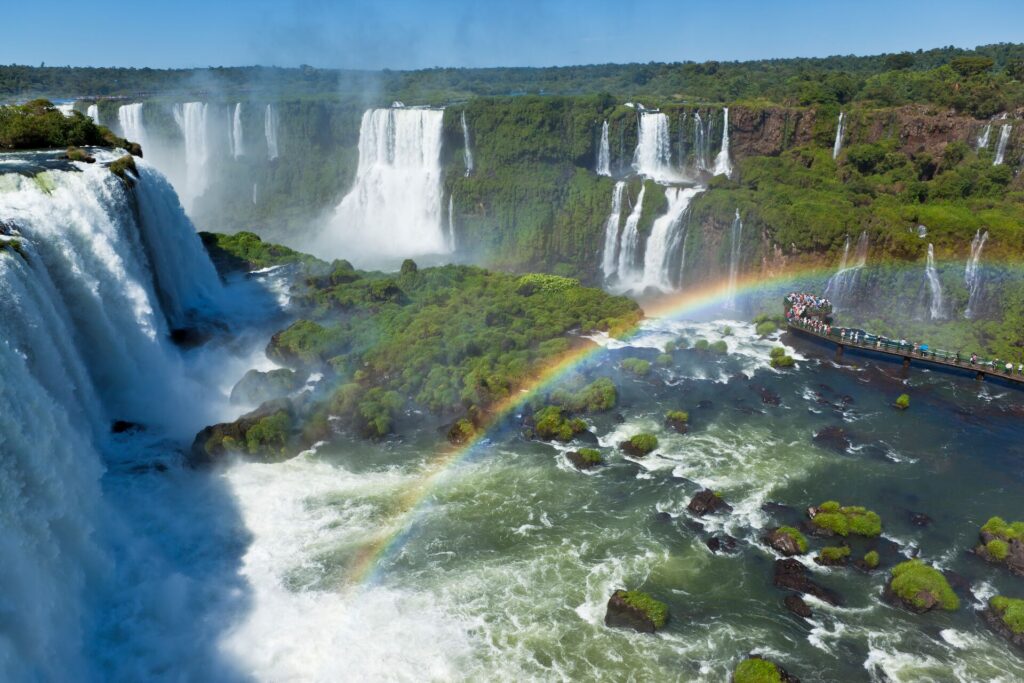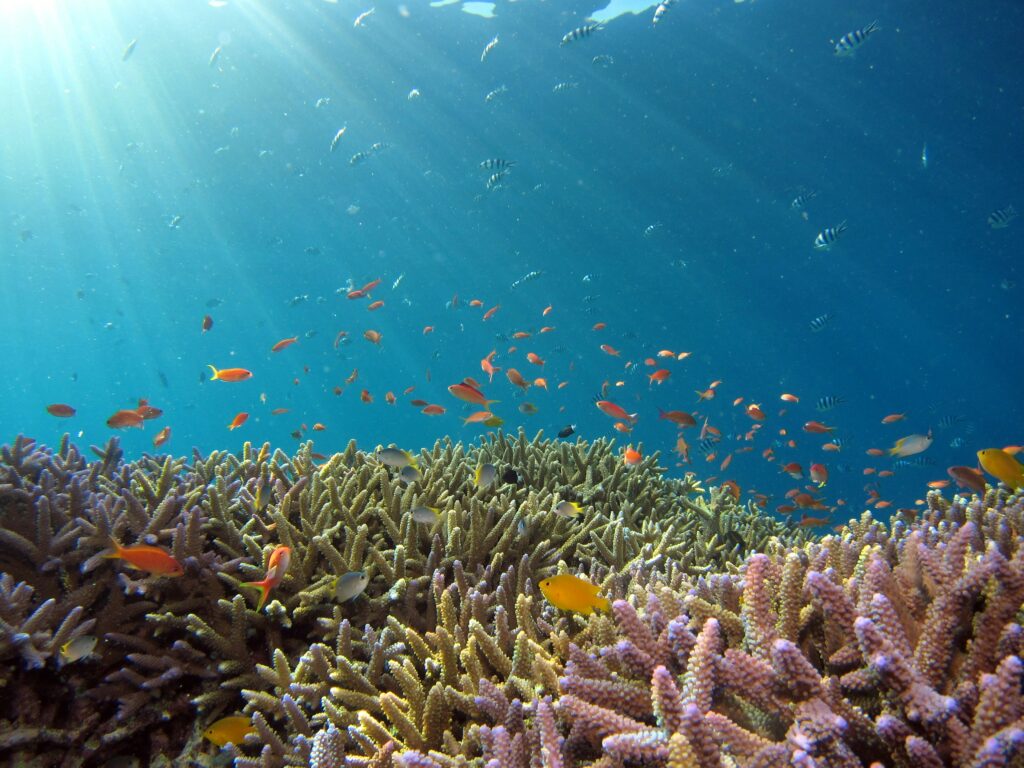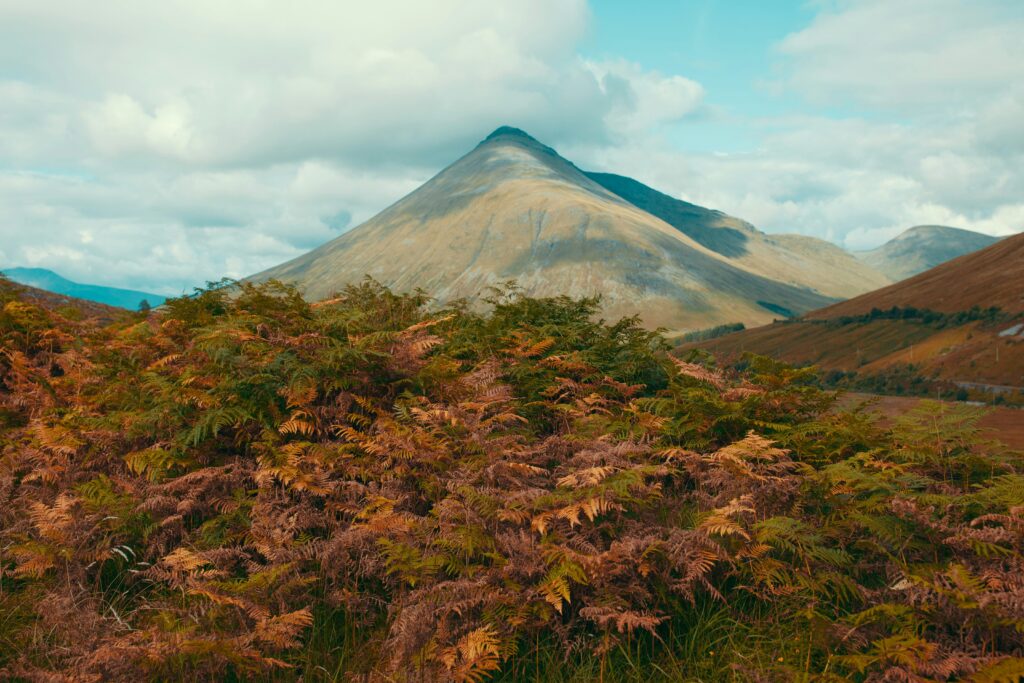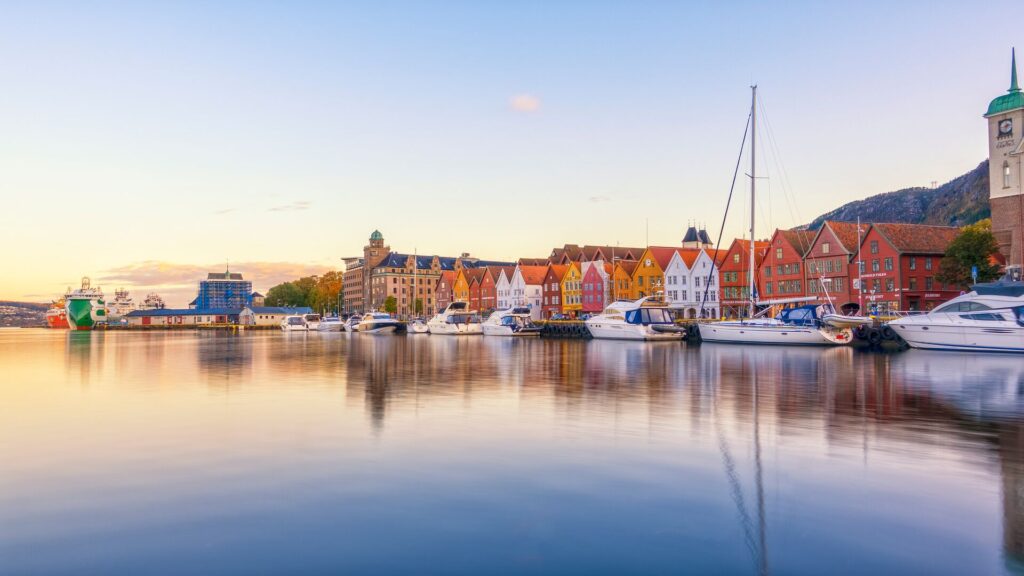Animals reclaimed their land, with cougars wandering into Santiago, dolphins swimming into the ports of Istanbul, and goats freely roaming the streets in Llandudno, Wales. Meanwhile, the Giant’s Causeway in Northern Ireland reintroduced a group of grazing cows. They help to clear bracken and bramble and encourage wildlife and wildflowers to return. The massive drop in flights and the ban on non-essential travel during the pandemic undoubtedly gave our atmosphere a chance to breathe. It also gave us an opportunity to reflect on the way we travel and what sustainable travel really means for our world.
THE IMPACT OF TRAVEL ON GLOBAL WARMING
Read more: Are sustainable flights almost within our reach? Insight investigates
The American Express Travel 2022 Global Travel Trends Report found that 65% of respondents are trying to be more aware of sustainable travel brands. Meanwhile, 60% want to book airlines with a carbon neutral commitment and 55% have an interest in carbon negative travel. Booking.com’s 2021 Sustainable Travel Report found that 73% of US travellers think sustainable travel is vital and 46% say the coronavirus pandemic made them want to pursue sustainable travel.
So how do we do that? A global ban on travel is not the answer.
THE IMPACT OF COVID AND TRAVEL ON PEOPLE
While there were positive environmental benefits of minimal human activity, many communities suffered greatly. The tourism industry is one of the world’s biggest employers, accounting for 10% of global GDP and supporting more than one in 10 jobs worldwide. When people stopped travelling, the whole tourism economy crashed, causing countless people to lose their jobs, businesses and livelihoods.
Lucie Dalila, Sustainability Manager at The Travel Corporation, says, “Some of the businesses we work with, particularly our Make Travel Matter® Experience (MTME) providers, have suffered extremely from the lack of business during Covid-19. Unfortunately we’ve also lost a number of valuable partners who didn’t survive the pandemic. Many of our experience providers have shared how relieved they’ve been to receive our groups this year and to have a regular and consistent stream of income.” We can support these people and communities as they rebuild by harnessing the power of sustainable travel.
A wealth of studies are showing that travellers in the future will likely focus on slow tourism, environmental stewardship, and more mindful travel, such as taking fewer but more appreciated trips. There will also be increased interest in taking trips closer to home and visiting emerging or ‘off-the-beaten path’ destinations. The American Express Travel report found that 77% of respondents want to be more conscious about supporting local businesses. Meanwhile, 59% want to make travel decisions to support a specific destination. More travellers want to support the communities devastated by the pandemic and forge meaningful connections when they travel.
Read more: Craving a more authentic, meaningful travel experience? Go guided
WHAT ARE WE DOING?
Read more: How you can experience the slow food movement while traveling with Insight
MAKE TRAVEL MATTER® EXPERIENCES
As part of our support for the local communities that have been economically devastated by the pandemic, we are including at least one Make Travel Matter Experience® on 50% of all itineraries. These experiences were specifically developed to provide regular income for people and communities and offer travel experiences that are mutually beneficial for both the host and the guest.
Lucie says, “Our Make Travel Matter Experiences give a voice and visibility to underrepresented populations who wouldn’t normally receive that much attention or international recognition and awareness for their work.”
“Tourism is an incredible force to revive a local economy that may have been dormant or slowing down. A great example of this is our new Make Travel Matter Experience® in Turkey. We visit an eco-farm in King’s Valley, a lesser known part of Capadoccia overshadowed by the main sights. For generations they’ve struggled to keep economy, population and traditions alive, but the eco-farm is now bringing visitors to this part of Cappadocia. It’s enabling the local villages to survive and share their traditions with visitors.”
Read more: It all comes back to the plate: Food’s role in understanding culture
REDISTRIBUTION OF TOURISM ACROSS DESTINATIONS AND SEASONS
We encourage our guests to consider choosing a region or destination in need of tourism such as India, Nepal, Uruguay, Sri Lanka, and the Balkans. If you do want to travel to the most popular destinations like Venice and Paris, we encourage guests to plan trips for the off-season to offer more consistent business.
Read more: The sustainable benefits of traveling in the off-season
THE IMPACT OF COVID AND TRAVEL ON CONSERVATION
As ecotourism and conservation programs were forced to stop, economic and food insecurity increased, which lead to surges in poaching, illegal fishing, deforestation, and loss of natural habitats and biodiversity. As we emerge from the pandemic, it is essential that we expand conservation efforts and support these programs, sites and habitats when we travel.
Read more: Meet the Sami, the last Indigenous people of Europe
WHAT ARE WE DOING?
Our parent company, The Travel Corporation, is committed to sustainable travel through our five-year How We Tread Right Sustainability Strategy. But sustainability has always been rooted in the ethos of TTC, and has been part of the business long before Covid. As a family owned businesses, TTC and The Tollman Family has always believed in preserving and caring for the destinations and communities for the future generations to come. Covid has certainly accelerated that growth and given us an opportunity to implement solutions quicker.
COMMITMENT TO NET ZERO
This year, Insight Vacations and The Travel Corporation family of brands announced our commitment to net zero. Now, we’re sharing TTC’s science-based targets, which have been validated by the Science Based Targets initiative (SBTi). The most effective means to address climate change is to get our emissions down to zero, which is our primary focus. To achieve this, here’s what we’re doing:
– We’ve reset our Climate Action Plan to incorporate these targets, committing us to Measure, Reduce, Restore, and Evolve.
– We’ve established a Carbon Fund that will be dedicated solely to initiatives that contribute to our net zero journey.
– Our TreadRight Foundation will prioritise and invest in nature-based solutions developed to restore our planet by addressing climate change as well as the rapid loss of biodiversity.
You can see our science-based targets and learn more about our net zero journey here.
Read more: Measure, reduce, restore and evolve: our journey to hitting net zero by 2050
CONTRIBUTING AND RAISING AWARENESS
GLOBAL COLLABORATION
Lucie says we are also “helping the industry with cross collaboration. As a Glasgow Declaration signatory, Insight and other brands of The Travel Corporation are setting up and sharing best practices with other businesses in the industry. As a leader in the industry we have a responsibility to collaborate, share knowledge and learnings with the industry and help smaller businesses.”
“We have also been collaborating with destinations like Bosnia and Herzegovina, Switzerland and Scotland. We help implement tools and solutions to support destinations transitioning towards more sustainable solutions. As part of this work we strongly encourage and guide our experience, food and accommodation providers to make better decisions and improve sustainability in their production chain.”
Read more: Thinking Swisstainable: in conversation with destination expert, Pascal Prinz
LOOKING TO THE FUTURE
While borders are reopening, we’re sure that travel will never be quite the same again. As a global travel business, we’re committed to evolving and upholding our responsibility to be part of the sustainable change. We have the opportunity to be a catalyst for long-term, sustainable change. And we’re embracing the remarkable power of sustainable travel to positively impact both people and planet for the decades to come.



